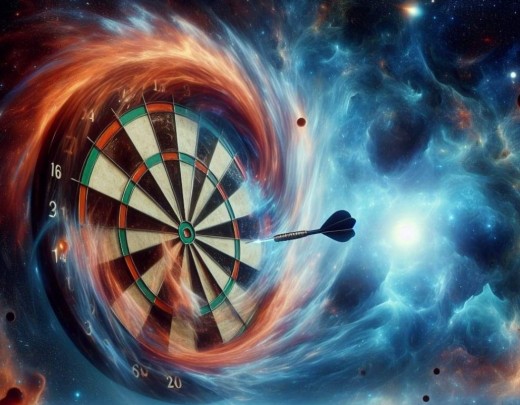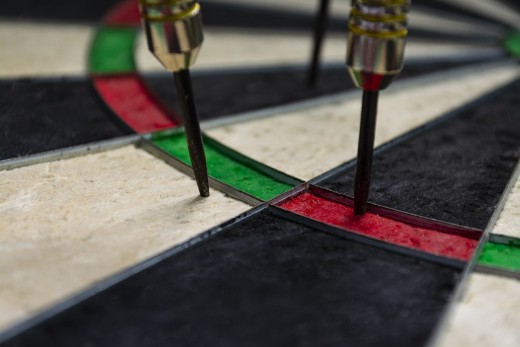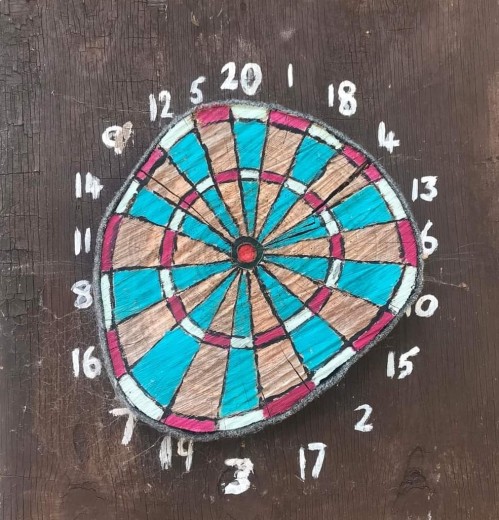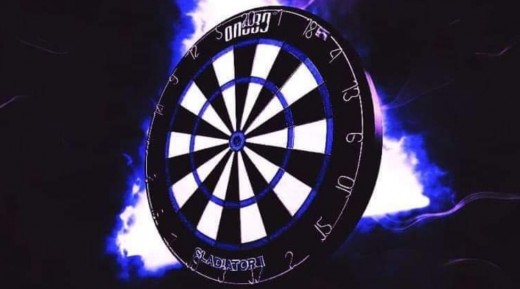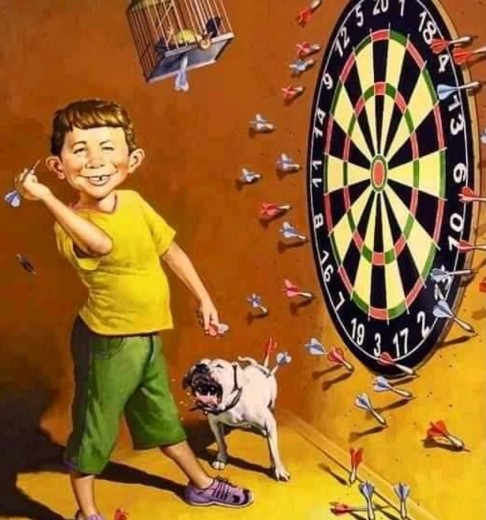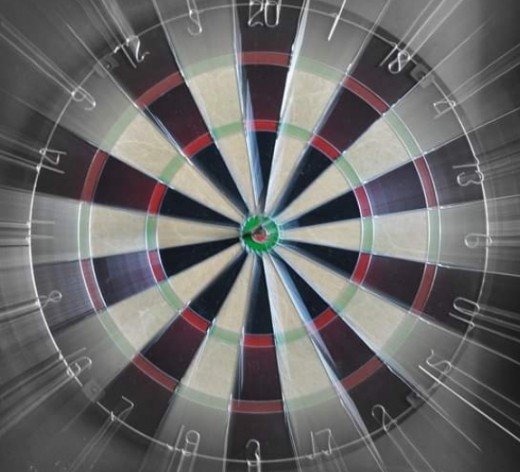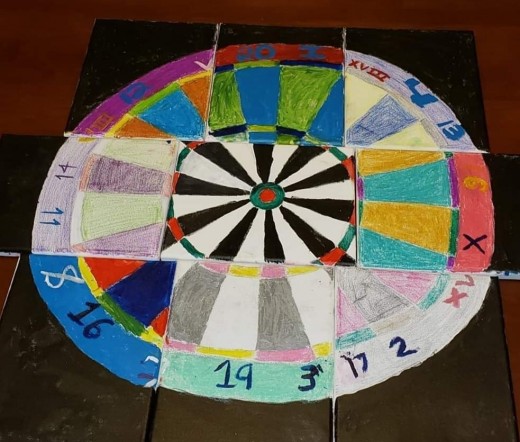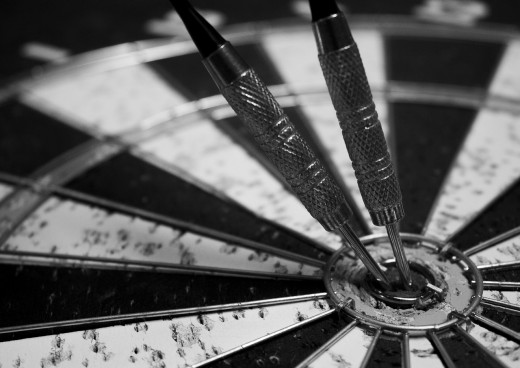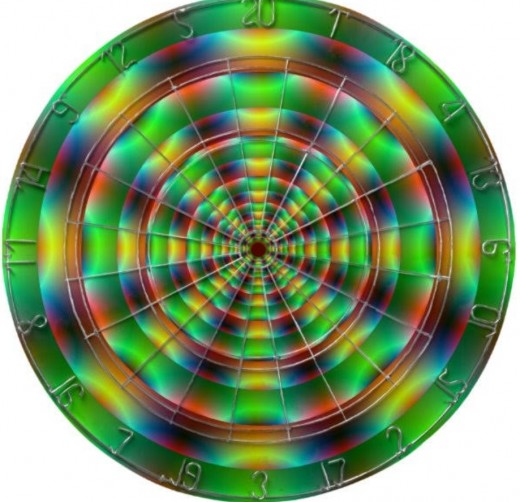Monday, December 16, 2023
Column CM130
An inteview with Alex Spellman
Along with Stowe Buntz, American Alex Spellman dominated this year’s Championship Darts Circuit (CDC) and qualified by the rankings for the PDC World Championship 2023/24. Spellman has competed for about ten years but only first appeared internationally when in 2022 he won his first WDF tournaments, the White Mountain Shootout and the Charlotte Open. Spellman is not only a darts professional but a darts coach as well at the Anubis Academy which he founded himself. Before his World Championship debut, we conducted the following interview. 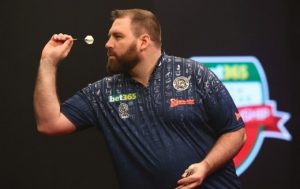
You won your first WDF tournaments in 2022 – I suppose you started to play darts some time earlier?
I started playing in 2008, but it wasn’t until around COVID that I really started taking the game seriously and traveling outside of my area.
How did you get involved in darts and was it steel darts from the beginning?
A blind draw pairs tournament was short on players, and I was asked to fill in. I believe I ended up in the finals in that event and I realized I made more money playing than I did working that day – I was in college working for minimum wage. Having some extra spending cash is what kept me coming back initially. It wasn’t until a couple of years later that I tried soft tip.
So, you have played electronic darts – how American darts as well?
I have not played many soft tip events. Other than the two ESPN events I won, I believe I’ve played in maybe only 4 or 5 others. I will be playing in the Hong Kong Darts Festival, which is soft tip, in just two weeks so that will be a new experience for me. I have never played American darts, though I do have a box full of widdy darts. So, maybe one day I’ll give it a stab.
Is there a darts scene in North Carolina with clubs and leagues? And where is the center?
The dart scene has slowed since COVID, but I believe it was the strongest state in the country heading into it. Raleigh, where I live, is definitely the hotbed with one of the largest leagues in the country. We have many active players that have won ADO National Championships, Youth National Championships, among others – including PJ Stewart Jr. who finished runner up to Luke Littler in last year’s WDF Youth Final.
Did you have some darting idols when you started to play?
To be honest – I did not. When I started playing, the first couple years were played in a small mountain town (Boone, North Carolina) and I never really paid much attention to the happenings in darts outside of my city.
What made you try international and CDC tournaments?
I played in the CDC the first few years of its existence. I did not have anywhere near the level of consistency I do now, but I participated to support it and hoped it would grow and be there for me when I figured the game out a bit more. I always knew I had something special; I just didn’t know how to unlock it. I relied a lot on natural talent and practice. It wasn’t until COVID that I learned to practice and work on my game the right way that it finally all came together.
I just always like to push myself to see how far I can take whatever it is I’m doing. It’s like a video game – once you beat a level or once you think the difficulty is not pushing you, you move on to the next one. I don’t know that I have any target goals to reach with my game other than to keep pushing forward and see how high I can get. So, now I’m at the place of testing the waters of international play – which has been successful for me so far.
In 2023, you tried your luck in the European Qualifying School – can you imagine playing in the PDC full time? Or might you even plan to be a PDC Pro in the future?
Absolutely… though I’ve not convinced myself yet that it’s the path I want to take. I know my ability and don’t feel like I need to prove anything to myself. I think there are just as many opportunities for me on the tour as there are away from it. I’ve found in life that letting things fall into place naturally always seems to go the best, so I’m just riding the wave right now and seeing where it takes me. I absolutely believe I have the ability that could have me be on the tour, and perhaps even be successful on it – but we’ll just have to see if that is where my path leads after this next Q-School attempt.
You even took part in some Players Championships and some Challenge Tour events – did you like it and how strong did you feel the competition was compared to the competition home in North America?
I loved it – just as I love any competition. In the Players Championship events I played I was playing poorly at the time as I was really struggling to sleep so I didn’t expect much, and the results showed that. I still had opportunities, I just didn’t take advantage of them – but in an odd way it gave me a confidence boost and a sense of comfortability knowing I wasn’t at my best and still competed.
As for Challenge Tour, which is most comparable to the US tour, I had a great time there as well. As previously mentioned, I would often have trouble sleeping and a few times played events after never having gone to bed the night before. I performed well early on, which earned me my invites to the Players Championship events – but I had to skip the last two weekends for other opportunities. The experiences I got will be invaluable as I move forward with my game. It was a great measuring stick to see where I stood with other renowned players. If you include MODUS experience, I’ve played and defeated some amazing players – John Henderson, Fallon Sherrock, Neil Duff, Luke Littler, etc. It also made me realize that as great as those players are – North America’s best are not far behind. If you look at what Jules did the last few months, what Buntz is doing right this second, my performances at MODUS, what Gates is doing on the Seniors Tour – we’re showing just how good we can be and we’re only really just getting started. I’m excited to see the state of our game in another 5 years.
One can read you are a professional darts player – do you earn your living playing darts and is that really an option in the US?
Up until April I worked for Epic Games. I left the company and decided to focus solely on my darts career for a while. The majority probably cannot survive in the US as a pro player. Epic took care of me while I was there and so when I left I had a little cushion to see where the game could take me. Other than playing, coaching is my other source of income which has been going well.
As you play both ADO/WDF and CDC tournaments what do you like better? And where is the level higher?
CDC without question. I’ve never been particularly interested in the WDF or ADO, as those events are short format and feel more like a fun weekend than a serious one. The CDC has done incredible things to raise the level of our game. In its first years it was mind blowing if someone shot a 90+ average. Now it’s commonplace and no guarantee to win anything. I am proudly the only player in CDC history to shoot a 100+ average and lose (6-5 to Jim Long) and it’s a testament to the CDC and its players that a 90 is no longer a safe performance.
Playing tournaments in North America means a lot of travelling – how do you cope with it and how can you reconcile it with a day job?
When I was at Epic, we had an unlimited time off policy, so it never really became an issue. I always had my work done, and if I didn’t, I would just work on the road. Now that playing and coaching are my sole focus, there’s no issues there.
Traveling is really only bad when it is taking time away from me and my wife. I try to bring her along as much as I can, but the high travel cost doesn’t always make that feasible as that could be the difference between profiting on a trip vs. breaking even. I grew up in the military, so constantly being on the go isn’t exactly foreign to me.
Do you have a sponsor to help with the costs of travelling?
I have some amazing sponsors with Galaxy Apparel and Barrel, DPFL and DartBrokers that do contribute cash to help cover my expenses throughout the year. Sponsors alone, however, will not come anywhere close to the true cost of travel so I still need to make my own way for the majority of costs.
On the internet I found you work as a darts coach – is that mostly online coaching or do you give one on one live coaching sessions as well?
I do both. If the person lives near me or it can be worked out where we can do a session when I will be in their area we will do it in person. Otherwise, it is primarily online. My approach doesn’t require the person to be in the same space. I’m less about telling you what to do, but instead teaching people how to improve on their own.
In the darts scene you can find a lot of people who think coaching in this sport is absolutely unnecessary – in which way do you feel coaching can help a player and what exactly do you teach your scholars?
I think you can find people that think that in just about any discipline, which is perfectly fine. I “coached” myself to where I am today. But it took me 15 years to figure it out. If I had a trusted mentor, I could have shaved a decade off that.
The majority of players I work with have two issues:
- Their mechanics are not ideal
- They don’t know how to properly work on their throw
I have players record their throw from the side and from directly in front. Then we slow it down and look for imperfections. The big one always being a complete follow through. I have a 2-hour course we go through breaking every part of the throw down – grip, wrist, elbow, shoulder, speed, release, positioning, alignment/aim – and then we emphasize the areas you need to work on. I can’t tell them what to do – as everyone is going to be different. So, we have to find what works for you, and this is something players really struggle with. I try to help them take a scientific approach to the game. It’s all physics – hitting or missing isn’t random. Changing one variable at a time and noting how it affects your darts. What happens if I release earlier? If I slow down? If I speed up? If I raise my arm? If I lower it? Cock my wrist all the way back? Have it more relaxed. We don’t want to try things for the sake of it then not remember what we did. We want to work with purpose so we can repeat it over and over.
Beyond the physical side – few ever seem to discuss how things should feel. I try to make sure my players know how things should and shouldn’t feel. When someone throws a perfect dart – rarely can they tell me what they did. The players then try to chase that feeling – but how can you if you don’t know what you did? So, I help them work through things they CAN feel. Coming across the body, tensing up, lifting parts of your body, etc. Eventually they will be able to tell when something feels right or wrong and work through it with purpose. And then they know exactly what they do when it feels good.
I don’t think coaching where you are just told what to do helps in the long term. Players need to know and understand the why behind it so they can buy into it and work on it properly.
Is mental coaching part of your sessions as well?
It is – but typically we do that a bit later. We discuss the mentality required when working on your game mechanically first and foremost. It’s a tough period for players. We hold competitive mental coaching for a little later because I believe a lot of that mental strength comes from the belief you have in yourself. And the better the mechanics, the better player you’ll be, and the better position you’ll be to be mentally sharp.
Same with math and strategy. We discuss it, but knowing what to hit and being able to hit it reliably are two different things so that is not the initial focus.
Why do you call your academy Anubis Academy? Anubis is something I connect with death while darts I would more connect with life. Your nickname has to do with Anubis as well I suppose.
So, I have the Egyptian aesthetic with my jersey and flights. I made the joke to someone I could call my coaching the Anubis Academy for some alliteration and they liked it. Some others did as well, so I just ran with it.
While most things connected with death are negative, Anubis is not. He guides and protects people through and to the afterlife. I’m just guiding folks in a different way. And yes “The Jackal” is directly related.
And what is you connection to Egyptian history and religion? Sorry, that’s not a darts related question, but I am curious…
Growing up I wanted to be either an astronomer or archaeologist. I eventually decided to work in IT instead, but my love for archaeology never died. Of all ancient cultures, Egypt just resonated with me. I’ve always collected little artifacts, well before I ever considered including it into my darts aesthetic. I wanted to showcase my love for something and have a jersey design that was more personal to me and my interests – and I think it is one of the best in the game.
As a coach you probably deal a lot with practice – what and how much do you practice yourself?
I only practice one of two ways:
- Mechanics
- Match
If something is off in my mechanics, I break down what it is, and I work on that one thing until it’s not a problem anymore. If everything is in a good place, then I only play practice matches. I’m only interested in practicing what I will be playing. I don’t have problems with practice games like 121, 170, etc. but I don’t think it adds value to my game. I think those games better serve players learning their outs. I get questions on how I practice my doubles – and I don’t. I don’t hit doubles because I practice them, I hit doubles because my mechanics are good. In my coaching sessions I show near the end how I do not aim, but I use my mechanics and alignment to do the aiming for me. So, all I care about is making sure my mechanics are as good as they can be and that’s really it.
How much can vary. Sometimes I’ll play for 10 hours. Some days very little. I don’t think you can over practice as long as you are in a good headspace and not wearing yourself down physically. If you are in a negative headspace or tired and sore, that’s not the time to practice. HOWEVER – I will still do so every so often because I can’t always choose what mood I’m in while playing, and it’s still good to try and work through your game when you aren’t at your best.
And what will your preparation for the World Championship look like?
It will be no different than what I already do. I try to build consistency in my preparation just as I do anything else in my game. If I approach playing a 5-year-old the same as I do MVG, then I’m always ready to play my best – or attempt to anyway.
My warmup session before a practice session at home, a CDC event, or the World Championships is always the same. I just make sure my throw speed and release point are in sync and that everything else feels as it should.
Did you ever play on a big stage in front of a huge crowd?
Yes. I was fortunate enough to play in the US Masters this year at MSG. I’ve never had a fear of being up in front of people and I greatly enjoy it.
Is it something you look forward to?
Absolutely. I enjoy interacting while the match is going on. It doesn’t pull my focus away and can actually help settle me down. I’ll just know a lot less of the people in the crowd this time.
What do you hope to achieve in London?
I only hope to play my best. I will not be coming in with the “just happy to be here” attitude. I’m there to win. Setting expectations of “I just want to get to Round 2 or 3” is setting me up for failure. I genuinely believe my best can compete with anyone. I know people that don’t know me or haven’t seen what I’m capable of will laugh at that, but if I do what I know I can do – they’ll believe in me too.
What darts do you play?
22g Alex Spellman Signature darts from Galaxy Barrels.
I read somewhere you designed your own barrels. What is special?
There may not be anything overly special other than they have my name attached to them – but I will say that for the first 8 people to try them, every single one of them hit a triple 20, first attempt. So, perhaps it’s their ability to find triples that makes them special.
I don’t know what it is specifically that makes them work so well for me, but I gave Galaxy a dart I really liked and asked for as close a replica as I could get. And somehow, they made it better. It’s a simple thin straight barrel. I’m told it is very close in design to Bristow’s.
I read as well 104 is your favorite outshot – why?
No other reason than it is a great discussion piece and great number to use in coaching for its flexibility. Just about any combination of big numbers leaves a great finish. Targeting 4 of each number from 20 to 16 you’re leaving 24, 28, 32, 36, 40.
What do you think is your personal strength and your biggest weakness as a darts player?
Strength – my work ethic. I don’t think anyone works harder than me on this side of the pond. I don’t know what my actual end goal is, but as long as I think I can improve I’m going to work to get there. And if anyone gets in my way, I’m going to try and outwork them until I get the upper hand again.
Have you got any hobbies or interests outside of darts?
I love playing guitar, though I rarely get to anymore. I’ll often record things for YouTube or Facebook just to force myself to do it. And of course, coming from the company that created Fortnite, I love video games. And as lame as it may sound – my primary interest and hobby is adventuring with my wife.

